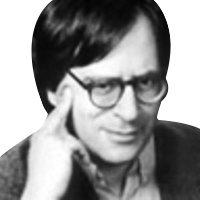Vaguely bohemian and only slightly out of the mainstream, the Standard Hotel in New York's Meatpacking District proved an apt locale for the entertainment press to line up to interview the famously fashion-savvy Sofia Coppola, who came a few blocks uptown from her SoHo digs to promote Somewhere, her latest film and the recipient of the top prize, the Golden Lion, at the 2010 Venice International Film Festival.
While Coppola is occasionally described as shy, it seems more accurate to pigeonhole her as a director who combines thoroughgoing, even steely, self-confidence with a reticent, no-frills conversational style. Unlike loquacious cineastes such as Orson Welles or her own illustrious father (Francis Ford), Coppola is nearly as laconic as Johnny Marco, the actor protagonist of Somewhere, underplayed to perfection by Stephen Dorff in an inspired comeback performance. It's not as if she's unfriendly or unwilling to help inquiring hacks. But, although infinitely more polite than old-time Hollywood directors such as John Ford, who were known to chew out admiring interviewers when plied with overly intellectual questions, she appears to believe, like Ford, that almost everything you need to know about her films is up there on the screen. It's also true that, although Coppola writes as well as directs her scripts, her real strength derives from a fertile visual imagination. Even though few memorable lines of dialogue come to mind, her work is rife with potent, often sexually charged images, such as Josh Hartnett removing his sunglasses as he saunters past admiring schoolgirls in The Virgin Suicides or a protracted, much-analyzed shot of Scarlett Johansson's pantyhose-clad backside during the opening credits of Lost in Translation.
In certain respects, Somewhere is a considerably more austere and minimalist version of Lost in Translation. The latter film offered a melancholy gloss on high-end tourism against the antiseptic backdrop of a Hyatt Hotel in downtown Tokyo. If the downbeat premise appeared somewhat uncommercial by Hollywood standards, Coppola leavened the gloom with a bit of welcome slapstick and muted romance. By contrast, the plight of Somewhere's Johnny, a chronically depressed action star plagued by boredom and remorse, offers less comic relief. Nearing the end of his tether, he finds refuge in Los Angeles' Chateau Marmont, a hotel with a long lineage as a hangout for actors and rock musicians. When I mentioned to Coppola that I thought it noteworthy that an action star spends much of the early part of the film languishing as a spectator—passively enjoying twin sisters pole dancing in his hotel room or watching his daughter Cleo (Elle Fanning) ice skating as Gwen Stefani sings "Cool" on the soundtrack— she replied, "I didn't think about his state of mind as a contrast with his being an action star; I just thought he was a little disconnected. His life is out of balance until his daughter arrives on the scene and he has to be engaged. I have friends in L.A. who are in show business and have a daughter that age. I based the character on her."
ADVERTISEMENT
“I’m not concerned with what people have to say about me.”

Coppola also mentioned that she began thinking about Somewhere after giving birth to her first daughter, an experience that led her to contemplate the responsibilities of being a parent. It's perhaps significant that the only time she appeared even vaguely irritable during our brief conversation occurred when I gently asked about possible "autobiographical" elements in the film. "It's personal, not autobiographical," she insisted. "People can say whatever they want. My childhood wasn't like that. My dad wasn't like that. It's certainly personal since some childhood memories are included. And I've been around that world enough to think I could write about it with some familiarity."
For the most part, however, she proved completely, almost preternaturally unflappable. After the prize at Venice buoyed her spirits, Coppola, through no fault of her own, became embroiled in a minor, and more or less bogus, local controversy. Since her ex-boyfriend Quentin Tarantino headed the Venice jury, some querulous members of the Italian press claimed that his decision was attributable to unethical "favoritism." Even Sandro Bondi, the Italian culture minister, heavy-handedly entered the fray by attacking Tarantino's judgment as "elitist." When asked if these personal attacks upset her, Coppola demurred and claimed, "No, I'm just glad we won the Golden Lion. I think it's just human nature for people to have differing opinions. I had a really good experience. I'm not concerned with what people have to say about me."
Whatever one thinks about Tarantino (or Somewhere, for that matter) there's little doubt, his onetime romantic entanglements notwithstanding, that he's a sincere fan of Coppola's minimalist aesthetic. (He's also on record listing Lost in Translation as one of his 20 favorite films.)
Even though Somewhere's tale of a burnt-out actor who experiences a few tentative epiphanies while spending quality time with his daughter might strike many as wafer-thin, it's difficult not to admire how Coppola, devising films that are heavier on melancholy ambiance than convoluted narrative, has carved out her own boutique-like niche in American independent cinema. In the final analysis, although her films arguably lack social or political substance (her previous Marie Antoinette, a lavish but wan historical epic, was unquestionably her worst film), she is certainly blessed with a visual acuity almost unparalleled in recent American movies and deserves respect as an unrepentant formalist. Acknowledging that she "admires all sorts of movies that are less rooted in plot than atmosphere," she maintains that "I didn't have to compromise at all. I keep the budgets of my films as small as possible so I'll have that freedom." She is also unstinting in her praise of some of her distinguished collaborators, particularly cinematographer Harris Savides (something of an L.A. specialist, he also recently shot Noah Baumbach's Greenberg), who captures Californian twilight with lyrical dexterity.
Throughout our conversation, Coppola emphasized her desire to strip away excess cinematic fat and achieve a distinctive "sparseness." Even when Somewhere's austereness veers perilously close to preciousness, it's heartening that there is at least one relatively mainstream American director with the ability to make precisely the projects she desires without any concessions to fickle studios or show business power brokers.
Richard Porton is one of the editors of Cineaste magazine in New York and has written on film for Cinema Scope, In These Times, and Moving Image Source. His anthology, On Film Festivals (Wallflower Press), was published in 2009.





